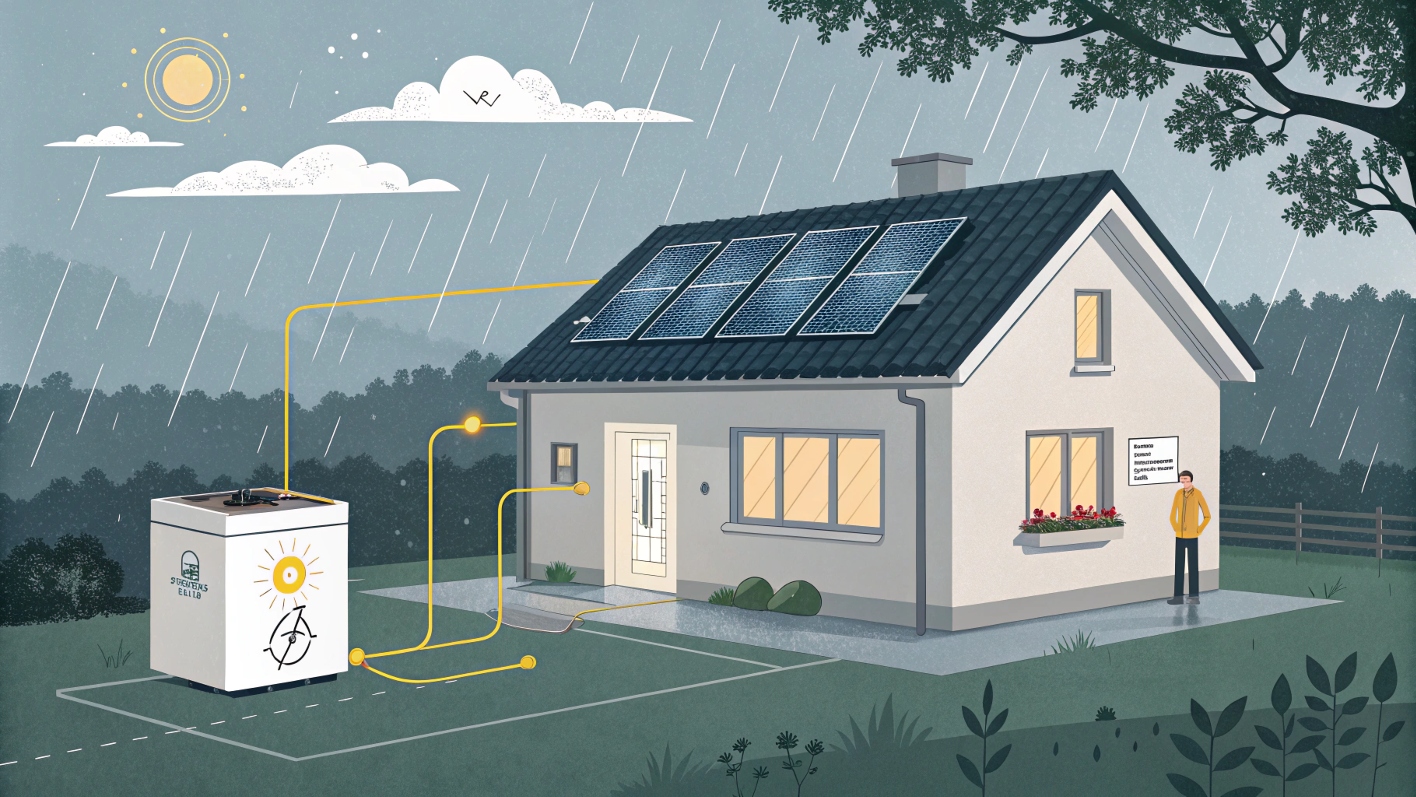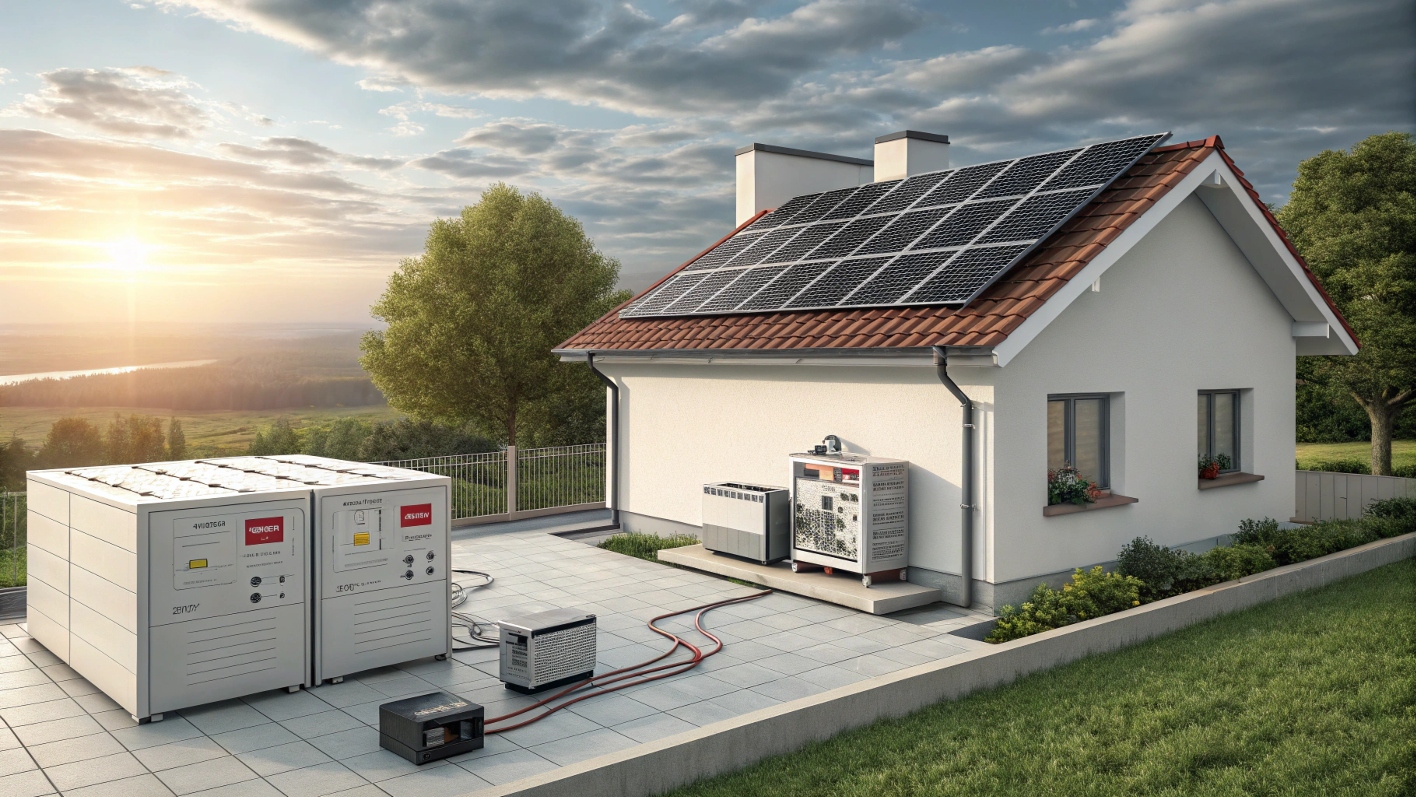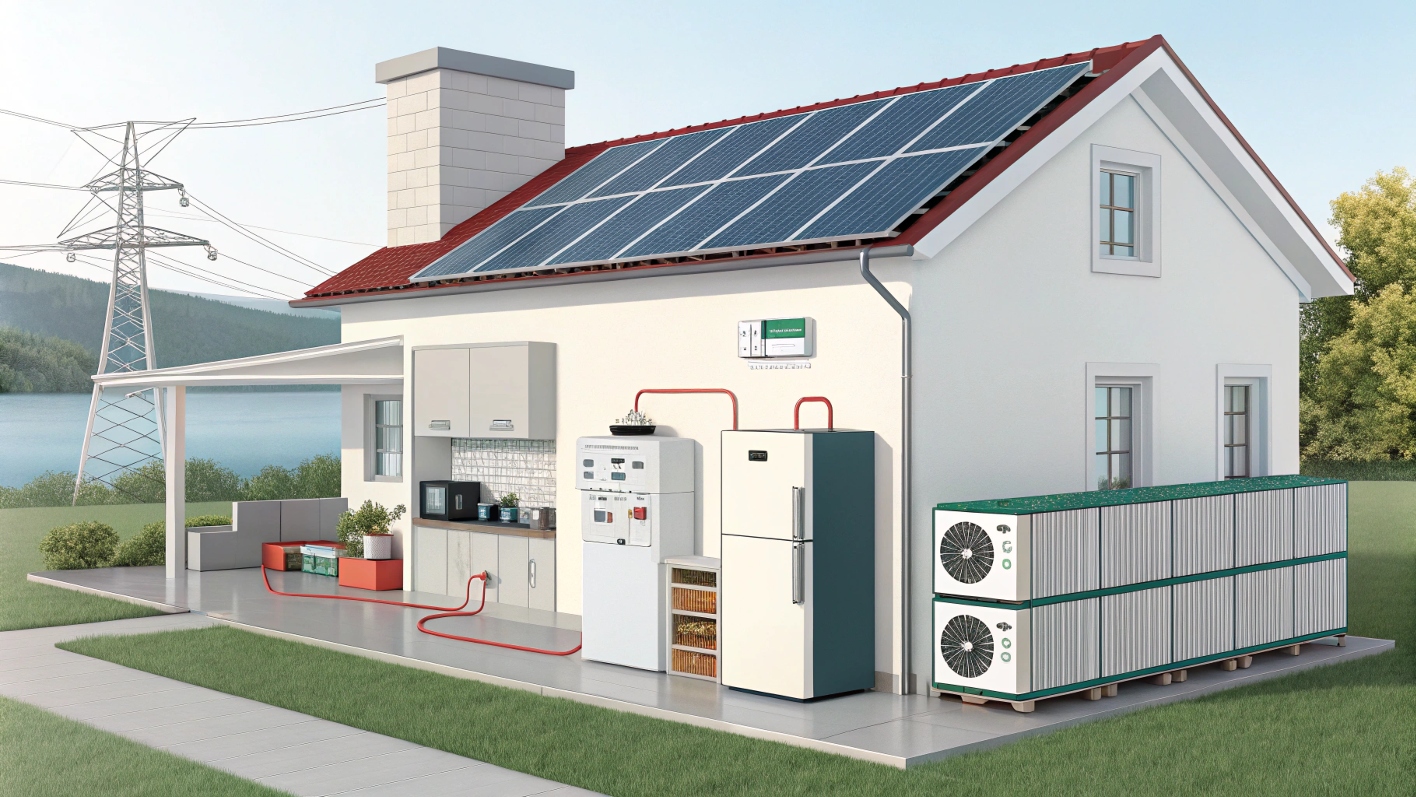Réponse rapide
Pourquoi utiliser une batterie solaire au lithium-ion pour le stockage d'énergie?
UN batterie solaire lithium-ion est utilisé pour le stockage d’énergie car il offre:
- Haute densité énergétique dans un format compact
- Longue durée de vie de 10 à 15 ans et des milliers de cycles
- Charge/décharge rapide tarifs pour capturer le soleil de pointe
- Décharge profonde sans dommage (80–90 % de la Défense)
- Entretien minimal par rapport à l'acide plomb
- Évolutivité grâce à une conception modulaire
- Surveillance intelligente et des fonctions de sécurité améliorées
1. Haute densité énergétique
Pourquoi c'est important: L'espace est souvent limité dans les installations résidentielles ou commerciales.
- Encombrement compact: Les batteries lithium-ion stockent jusqu'à 100 Wh/kg ou plus, contre 30 à 50 Wh/kg pour le plomb.
- Léger: Plus facile à manipuler et à installer sur les murs ou dans des armoires de batteries étroites.
Pour un look élégant, solution d'économie d'espace, Explorez notre Batterie solaire LiFePO4 modules.
2. Longue durée de vie
Pourquoi c'est important: Moins de remplacements signifie une réduction des coûts à long terme et moins de déchets.
- 10–15 ans de service avec 3 000 à 5 000 cycles complets
- Rétention constante de la capacité-sur 80 % après des milliers de cycles
Comparez cela aux batteries au plomb, qui ne durent généralement que 3 à 5 ans dans des conditions d'utilisation similaire.
3. Efficacité aller-retour
Pourquoi c'est important: Maximiser l’énergie stockée utilisable réduit la dépendance au réseau.
- Jusqu'à 95 % efficacité, ce qui signifie que très peu d'énergie est perdue pendant la charge/décharge
- Les systèmes au plomb fonctionnent souvent à seulement 70–80 % efficacité, gaspiller davantage de votre récolte solaire
Plus d'efficacité signifie qu'une plus grande partie de votre énergie solaire produite est transformée en kWh utiles..
4. Charge rapide & Décharge profonde
Pourquoi c'est important: Capture les pics solaires intermittents et fournit des sauvegardes fiables.
- Tarifs de recharge rapides— stocke rapidement l'énergie pendant les heures d'ensoleillement maximal
- Capacité de décharge profonde jusqu'à 80–90 % Ministère de la Défense, contre seulement 50 % pour le plomb-acide, vous donnant plus de capacité nominale de la batterie
Cette flexibilité garantit que vous pouvez puiser et remplacer l'énergie selon vos besoins sans endommager les cellules..
5. À faible entretien
Pourquoi c'est important: Réduit le temps et les coûts consacrés à l’entretien.
- Pas d'arrosage ou contrôles électrolytiques requis
- Pas de frais de péréquation—juste une simple routine de charge/décharge
- Auto-décharge minimale, afin que les batteries conservent leur charge plus longtemps pendant les périodes d'inactivité
Installer et oublier, vous libérant de l'entretien régulier qu'exigent les batteries au plomb.
6. Évolutivité & Modularité
Pourquoi c'est important: Vous pouvez commencer petit et grandir selon vos besoins.
- Conception modulaire permet d'ajouter ou de retirer des modules de batterie en parallèle
- Options de tension (12 V, 24 V, 48 V) s'adapte à n'importe quel onduleur ou configuration hors réseau
Besoin de plus de capacité l’année prochaine? Ajoutez simplement plus de modules de batterie au lithium sans remplacer l'intégralité de votre banque.
7. Surveillance intelligente & Caractéristiques de sécurité
Pourquoi c'est important: Assure un fonctionnement fiable et protège votre investissement.
- Système de gestion de batterie intégré (GTC) équilibre les cellules et évite les surcharges/décharges excessives
- Capteurs de température et détection de défauts améliorer la sécurité
- Surveillance à distance via une application ou un portail Web pour un diagnostic en temps réel
Restez informé de l’état de santé et des habitudes d’utilisation de votre système, et détecter les problèmes avant qu'ils ne deviennent des problèmes.
8. Respectueux de la nature & Rentable dans le temps
Pourquoi c'est important: Mieux pour votre portefeuille et pour la planète.
- Remplacements réduits réduire les déchets dangereux provenant des vieilles batteries
- Efficacité supérieure réduit le gaspillage d’énergie et les factures de services publics
- Retour sur investissement à long terme: Malgré des coûts initiaux plus élevés, une maintenance réduite et une durée de vie prolongée rendent le lithium-ion moins cher par kWh stocké tout au long de sa durée de vie
Vous investissez davantage au départ mais économisez considérablement sur les remplacements, perte d'énergie, et entretien.
Conclusion
Les batteries lithium-ion offrent une combinaison imbattable de performance, durabilité, et efficacité pour le stockage de l'énergie solaire. De leur conception compacte et charge rapide à leur longue durée de vie et fonctions de sécurité intelligentes, ils constituent le premier choix pour les systèmes solaires modernes. Prêt à mettre à niveau votre stockage? Découvrez notre Batteries solaires LifePO4 et complet Solutions de stockage solaire pour fiable, alimentation de secours nécessitant peu d'entretien.
FAQ
Q: Les batteries lithium-ion sont-elles meilleures pour le stockage solaire que les batteries au plomb?
UN: Oui. Ils offrent une densité énergétique plus élevée, durée de vie plus longue, charge plus rapide, décharge plus profonde, et moins d'entretien.
Q: Combien de temps durent les batteries solaires lithium-ion?
UN: Généralement 10 à 15 ans ou 3 000 à 5 000 cycles, contre 3 à 5 ans pour les batteries au plomb.
Q: Puis-je étendre un parc de batteries lithium-ion plus tard?
UN: Absolument. Leur conception modulaire vous permet d'ajouter plus de modules en parallèle, augmenter la capacité sans changer de tension.



